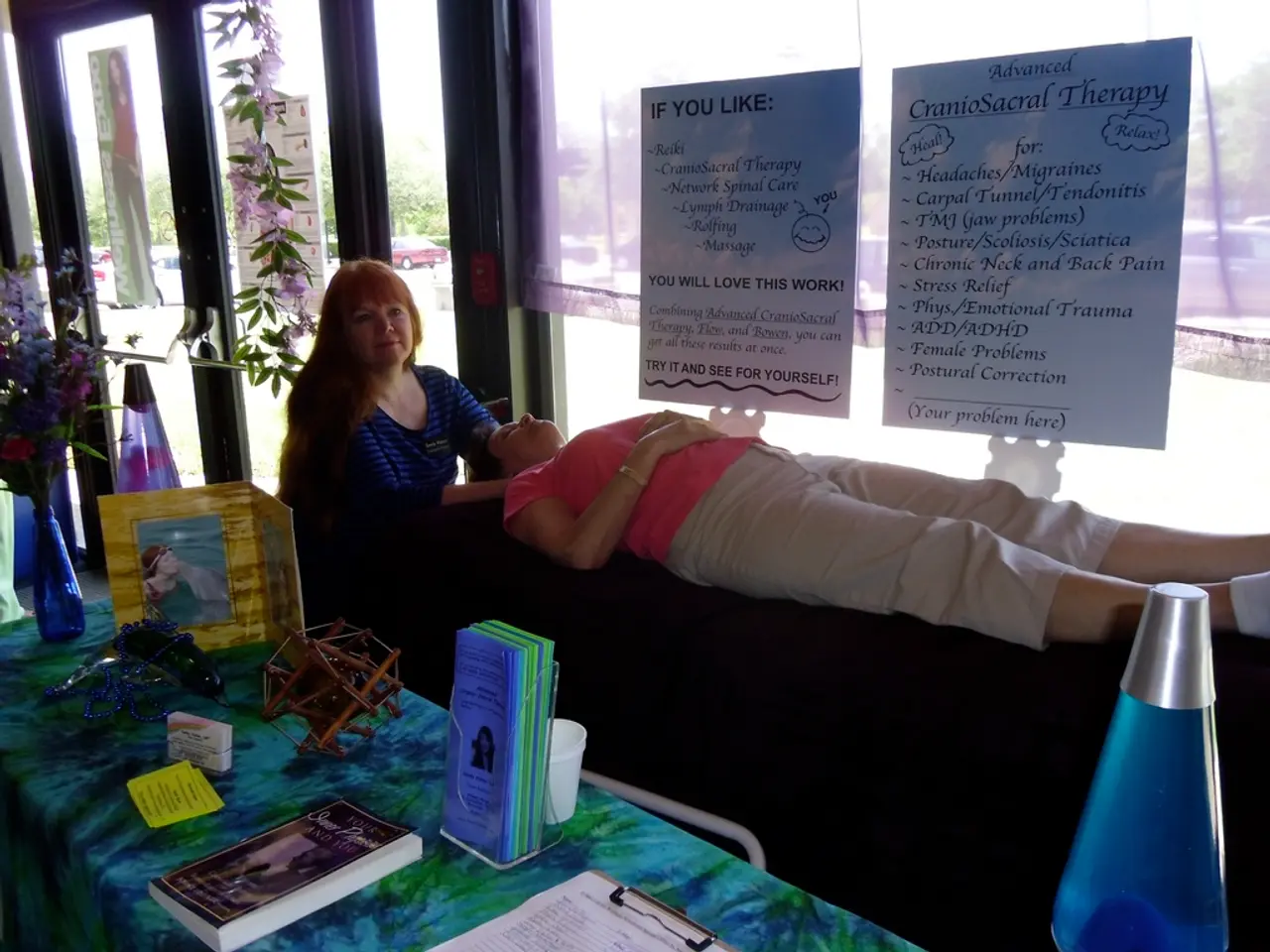Strategies for Conquering Social Anxiety through Self-Help Methods
In a world where social interactions are increasingly important, social anxiety can be a significant obstacle for many individuals. However, recent research has uncovered several effective self-help strategies that can help individuals overcome social anxiety.
One of the most promising approaches is Cognitive-Behavioral Therapy (CBT). This technique, which includes cognitive restructuring and exposure therapy, has been consistently shown to be effective in reducing social anxiety. Cognitive restructuring involves identifying and challenging irrational thoughts that contribute to anxiety, while exposure therapy gradually exposes individuals to feared social situations to build confidence and reduce anxiety.
Mindfulness and relaxation techniques are also valuable tools in managing social anxiety. Practicing mindfulness, such as meditation and mindfulness exercises, helps regulate emotions and reduce anxiety levels. Progressive Muscle Relaxation (PMR) is another useful technique that involves tensing and relaxing muscle groups to reduce tension and anxiety.
Self-talk and self-compassion can also play a significant role in managing social anxiety. Speaking to oneself in the third person can create psychological distance and reduce anxiety by promoting a more objective view of stressful situations. Fostering a self-compassionate mindset can improve how one processes and responds to social anxiety experiences, leading to reduced anxiety post-events.
Technology-based interventions, such as mobile psychoeducation programs, are becoming increasingly popular. Programs like OkeyMind use engaging formats such as animations and influencer interviews to educate and support young adults in managing social anxiety. These programs include self-learning modules and psychological assessment tools to monitor progress.
In addition to these strategies, regular practice and engagement are essential for maintaining progress and preventing relapses in managing social anxiety. Regular exercise, setting realistic goals, and engaging in volunteer activities and group activities can provide opportunities for shared interests, making social encounters feel less daunting.
Adequate sleep, a healthy diet, and avoiding substances like coffee and alcohol can also help manage social anxiety symptoms. In some cases, medication, such as SSRIs and benzodiazepines, may provide support for managing severe symptoms of social anxiety when used in conjunction with therapy.
It is important to note that social anxiety disorder, also known as social phobia, can significantly impact daily life, affecting friendships, romantic relationships, and professional aspirations. Approximately 12.1% of people in the U.S. will experience this condition at some point. A formal diagnosis of social anxiety is made according to the criteria outlined in the DSM-5.
Support groups, both online and in-person, can provide validation and a sense of community for individuals managing social anxiety. Sharing experiences with like-minded individuals can help manage social anxiety and foster a sense of belonging.
In conclusion, by incorporating these strategies into daily life, individuals can effectively manage and reduce their social anxiety. Seeking professional help, such as online therapy platforms or qualified therapists, can provide personalized strategies, including CBT and medication, to manage social anxiety. With consistent practice and engagement, it is possible to overcome social anxiety and lead a more fulfilling life.
- Science has revealed that cognitive-behavioral therapy (CBT), which comprises cognitive restructuring and exposure therapy, can significantly reduce social anxiety.
- Engaging in mindfulness practices such as meditation and mindfulness exercises, as well as progressive muscle relaxation (PMR), can help individuals manage their social anxiety levels.
- Self-talk and self-compassion, including speaking to oneself in the third person and fostering a self-compassionate mindset, are valuable in processing and responding to social anxiety experiences.
- Technology-based interventions, like mobile psychoeducation programs, can educate and support individuals in managing social anxiety, offering self-learning modules and psychological assessment tools.




